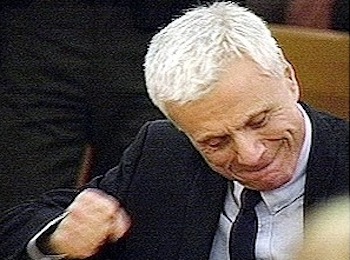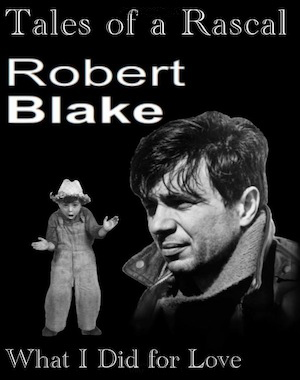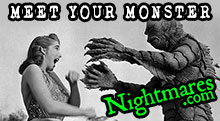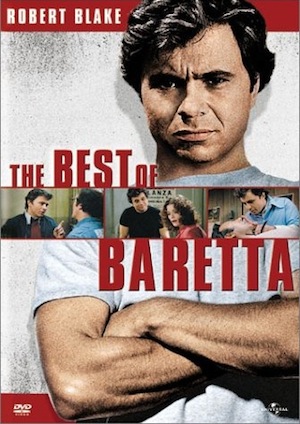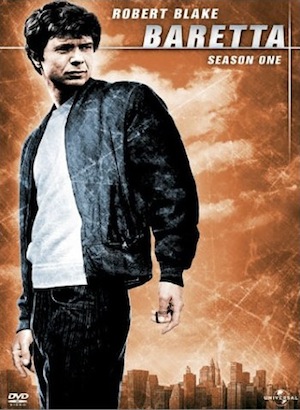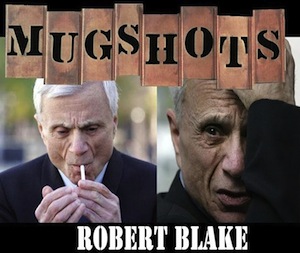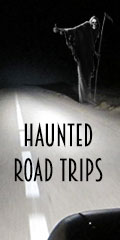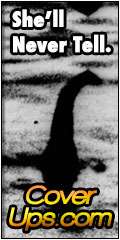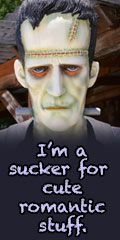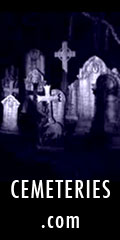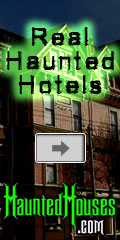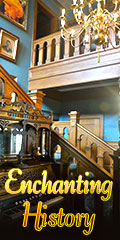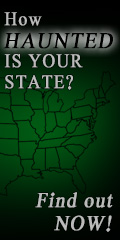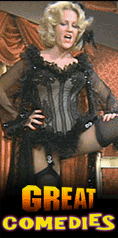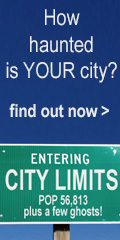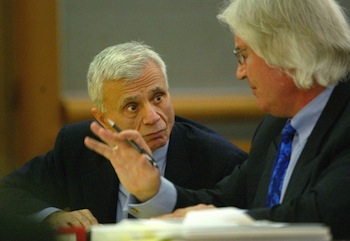
How did a tough little guy from New Jersey rise to such heights only to blow it big time and end up being charged with murdering his wife? If you wanna know, ask actor Robert Blake.
Life wasn't always klieg lights and red carpets for actor Robert Blake. Born Michael Gubitosi in New Jersey, he was the first born American son of Italian immigrants. One day he would become a Hollywood star. You couldn't ask for a better rags-to-riches debut.
At first, it seemed to be the stuff that dreams were made of. In 1938, the family set out for the bright lights of Hollywood hoping to get their kid in the movies. Within a year, little Mickey Gubitosi was grabbing bit parts at MGM and soon was appearing in the Our Gang comedies, first as Mickey Blake and later as Bobby Blake.

Bobby Blake's star was rising. He had a reoccurring role in Republic Pictures' Red Ryder series and played opposite Humphrey Bogart in the classic, The Treasure of the Sierra Madre.
Success on the big screen means nothing if you're being abused at home. As an adult, Blake often relayed stories of physical abuse delivered at the hands of his alcoholic father. Displaying clear signs of a troubled childhood, Bobby ran away from home numerous times and had difficulty fitting in at school.
After a stint in the Army in the 1950s, he returned to acting as Robert Blake. No longer the cute kid, he was lucky to make the transition to adult roles. In 1957, Blake grabbed the brass ring again when cast to play murderer Perry Smith, in In Cold Blood.

Adapted from the best-selling novel by Truman Capote, Perry Smith was a convicted killer who, like Blake, had suffered an unhappy childhood.
While in prison, Smith met fellow convict Dick Hickock. After serving their time, the pair wiped out an entire family in Kansas. So much for rehabilitation.
Captured in Las Vegas, the murderers were hanged in 1965. Prior to their executions, noted author Truman Capote held extensive interviews with both men and wrote his novel, In Cold Blood, based on his insights into the killers and the murders.
Rumors have circulated for decades that Truman Capote, who lived a flamboyantly gay lifestyle among the Jet Set in New York City, developed not only a friendship with Perry Smith but also had a sexual fixation on the killer.
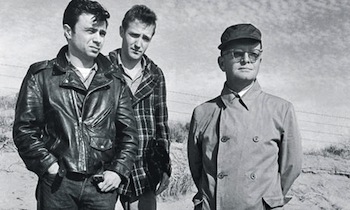
Richard Brooks directed the film version of Capote's novel and it not only created controversy but netted Brooks five Academy Awards. Physically, the resemblance between Bobby Blake and Perry Smith was startling. Intense, inky dark eyes and tousled hair tumbling across the forehead. However, the abusive childhoods of both Blake and the killer he portrayed, as well as the their equally explosive tempers, were just shy of uncanny.
Perhaps, director Brooks recognized the pent-up anger lingering just beneath the surface in Robert Blake and realized that he'd found the perfect actor to portray a cold-blooded killer.
Winning accolades for his performance with In Cold Blood, Blake continued to find work in films but he made his fortune on the small screen. Cast as a cop who didn't play by any department rules, Blake starred for 3 seasons in the 1970s television series, Baretta. Blake's Baretta was a quirky, streetwise cop who, when not busting the heads of criminals, strolled around with a cockatoo named Fred perched upon his shoulder.
Baretta was developed as a mid-season replacement for Toma, a TV series starring Tony Musante. Musante quit Toma after one season citing creative differences with his producers who quickly developed Baretta and put it on the boob tube.

Blake's first marriage to actress Sondra Kerr lasted just shy of 20 years and resulted in two children and a divorce that left him bitter and with a bigger chip on his shoulder. By 1999, Blake hooked up with a Hollywood hanger-on named Bonny Lee Bakley.
Bonny Bakley was a high school dropout who had a marital history as long as your arm. At age 21 she married her own first cousin and it went all downhill from there. Her life twisted and turned inside and out of the shadows as she passed bad checks, worked cons and had convictions for drugs and fraud.
Bonny walked down the aisle nine more times and when she wasn't exchanging vows at the altar she worked a new scam, a lonely hearts club for men. Easy money was rolling in for sending erotic photos of herself to lonely men and asking for money in return.
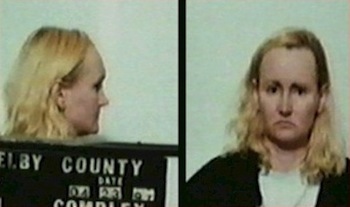
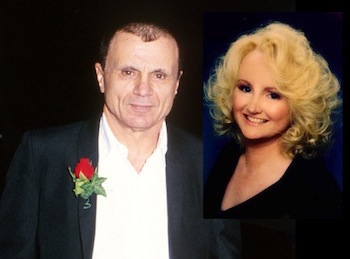
Bonny was star-struck and allegedly had an affair with aging rocker Jerry Lee Lewis. Hoping to walk in the footsteps of Marilyn Monroe, Bakley. longed to see her name on the Hollywood Walk of Fame. She'd become famous, all right, but not nearly in the way she intended.
Bakley had been two-timing Blake from the get-go. While sleeping with the Baretta star she was also hooking up with Marlon Brando's son, Christian. When she discovered she was pregnant, she separately told both men they were the father of her baby daughter.
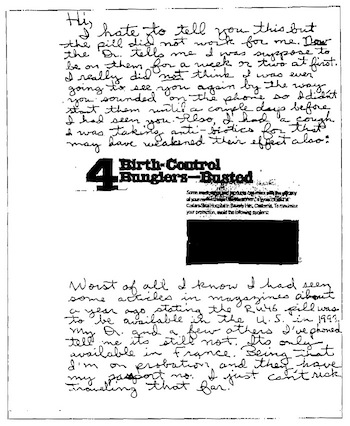
Hi,
I hate to tell you this but the pill did not work for me. Now the Dr. tells me I was suppose to be on them for a week or two at first. I really did not think I was ever going to see you again by the way you sounded on the phone so I didn't start them until a couple days before I had seen you. Also, I had a cough. I was just taking antibiotics for that may have weakened their effect also:
Worst of all I know I had seen some articles in magazines about a year ago stating the RU46 pill was to be available in the U.S. in 1993. My Dr. and a few others I've phoned tell me its still not. Its only available in France. Being that I'm on probation and they have my passport no: I just can't risk traveling that far.

Hi,
I'm sorry but I still want to marry you, at which point I will still want weekends. However, I am willing to wait if you will get engaged for a year and a half. I could come there once a month until Feb. 2001 when I will move into my house and then see you when ever you can fit me into your schedule. Hopefully a few times a month?
I would need: 1, A ring, sorry but I'm already out thousands to the lawyer and if I call the entire thing off I'm going to get hit with the ten thousand dollar bill they intend to get you for. He is Marvin Mitchellson's partner so he doesn't come cheap. If you are going to do this, make it at least a carat, size 6. You can get it at a pawn shop or one of your flea markets, I don't care as long as its real and from you. 2, Paternity papers signed and notarized. So I can get S.S. for her. This does not effect what you get so don't worry there. (I'll send some papers when I return home.) If you want to do a DNA first fine. 3, Your phone no. 7615240. Keep it for the year and a half so I can call you. These three things are what I need to close the deal for now. This would bring us up to Spring 2002 at which time we could re-negotiate. A lot can happen by then. I know I'll still want to marry you though. Unless you can come u with a disease that is fatal, transmittable and for real next time! I'm trying to be fair, this is about the best I can do. Besides in my effort to get over you I got in tight with Christian. I don't feel it would be worth it to sever that relationship for anything less than an engagement. After all, it may not just be your money I'd miss out on by marrying you it might be Marlon's as well, via Christian someday. I realize I'm just spinning my wheels here for nothing. I know you are determined not to give me anything I want. However I still love you and I would prefer to work things out if at all possible. My brains are at war with my heart on this one though.
Blake forced a DNA test which ultimately proved that he was the baby's father. Blake and Bonny were married and their child, little Rosie Blake, soon became the apple of Robert Blake's eye.
His relationship with his wife was another matter. Bakley lived separately in the guest house behind Robert Blake's home in Studio City. Blake remained ensconced in the main house dubbed his Mata Hari Ranch.
Despite their stormy relationship (or skeptics would say because of it), Robert Blake escorted his wife to dinner at one of his favorite restaurants, Vitello's, on Tujunga Avenue in Studio City, CA, on May 4, 2001.
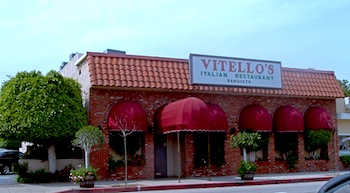
The entire evening was just 'off' somehow. A creature of habit, Blake dined at Vitello's several nights a week and it was always the same. He never made reservations. He always had his car parked by the valet. He always sat at the same table right in the front of the restaurant and he always ordered the same meal. In fact, Vitello's had named the dish 'Pasta alla Robert Blake' in honor of the actor.
That night it was different. Blake called ahead and made a reservation but asked for a table in the back of the restaurant. Instead of using the valet, Blake parked his car behind a large dumpster near a construction site on a darkened side street two blocks from Vitello's.
Blake ordered his usual pasta on the night of the murder. However, according to witnesses, he made a trip to the men's room and was violently ill but then returned to his table.
According to Blake, after the couple had finished their meal at 9:30 p.m. they walked together back to his 1991 Dodge Stealth. Suddenly Blake said that he realized he'd left his gun inside the restaurant on the seat under the table where they'd dined.
Blake's account of what happened that night raised more questions than answers. According to Blake, he left Bonny alone in his car, returned to Vitello's, walked through to the back of the restaurant and picked up his gun from the table where he'd left it. Then he left the restaurant and headed back to his car where he found his wife bleeding to death.
Why was Blake even carrying a gun? Later he would explain he felt that he needed to be armed in order to 'protect' his wife because she was being 'stalked'. If he was so interested in protecting Bonny, why would he have left her alone in the car on a dark side street?
Shocked at finding his wife bleeding to death, Blake ran around the corner to a nearby house to summon help. A filmmaker, Sean Stanek, came to the door of his home and instantly recognized that the agitated stranger he was speaking to was the famous actor Robert Blake.
Blake told him that his wife had been attacked and asked Stanek to call 911. After calling for help, Stanek followed Blake to the car. Following directions given him by the 911 operator, Stanek tried in vain to stop Bonny's bleeding. She had been shot in the shoulder and the cheek and was unresponsive.
Accounts of witnesses vary as to what happened next. Did Blake, as he claimed, return to Vitello's for a second time to get additional help? Or, as was also reported, did the actor simply sink to his knees on the curb near his car and remain on the scene. Witnesses would testify that Blake seemed to be 'faking' tears while rubbing his hands on the grass as if he was trying to wipe them clean.
According to testimony by Vitello's co-owner, Joe Restivo, who was working at the host station near the front door all evening, Blake only returned once, and never to get a gun left at a table.
Restivo explained that he'd never seen Blake come to look for a gun but only seen him come back to Vitello's at a time after Bonny must have been shot.
“He ran in saying something had happened... that his wife had been hurt and then he said she'd fallen down. Finally, he said she'd been shot and mugged and asked me to call 911.”
Restivo begin to dial to report an emergency and then Blake stopped him saying the call had already been made. Blake then said he was thirsty and drank two glasses of water.
“He asked for water, drank it here and left... the guy was nuts.”
At 10:45 p.m. Bonny Lee Bakley was pronounced dead at St. Joseph's Hospital in Burbank. The police asked Blake to take a polygraph on the night of the murder but he refused, claiming he was too upset.
Later Blake would say that he feared he might fail the test because he'd had dreams of killing his wife.
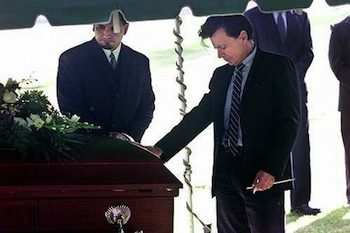
There were just too many loopholes in the case for the police not to consider Blake as the prime suspect in his wife's murder. For starters, he hated her guts and was hoping to get out of the marriage and win full custody of his daughter, Rosie. Of course, Blake's bizarre behavior and discrepancies in his story weren't pointing to his innocence either.
No one had seen him come back into the restaurant, as he'd claimed, to pick up a forgotten gun. According to Vitello's staff the table where Blake had dined with Bonnie had been cleared immediately after the couple had left the restaurant. If a gun had been sitting on the red leatherette bench it would have been spotted by the bus boy or waiter.
On the night of the murder, Blake did show the cops his licensed handgun as “proof” of his story but it was ruled out as the murder weapon. A WWll German army revolver was later found in the dumpster in front of Blake's car. The serial numbers had been removed and the gun was covered in an oily substance and no fingerprints could be recovered. Forensic testing proved it was the murder weapon.
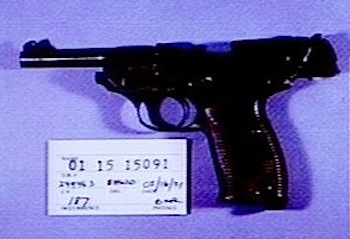
Bakley's family were absent from Bonny's funeral as they believed, from day one, that Blake was responsible for the murder.
Reportedly months earlier, Bakley's family had heard the actor threaten that Bonny “already had a bullet with her name on it!”
Eleven months after Bonny Bakley drew her last breath, 71-year old Robert Blake was arrested for her murder. Like the O.J. Simpson case, the trial of Blake morphed into a media circus with Blake as the clown in the center ring. Mugging for reporters outside the courtroom, angering his own defense lawyers and staging ill-advised interviews with reporters, Blake seemed to be doing everything wrong.
However, the case against him was totally circumstantial. Sure, there was testimony that he'd tried to hire a hit man on several occasions to kill Bonnie. Does that count for anything?
Earle Caldwell was a handyman who worked around Blake's house. Blake said that he had hired Caldwell as a bodyguard to protect his wife but the D.A. didn't buy it. Both Blake and Caldwell were arrested for Bakley's murder. The prosecutors believed Blake had pulled the trigger and disposed of the gun in the dumpster but that both men were engaged in a conspiracy to cover up the crime.
Blake was also charged with two counts of solicitation to commit murder. The prosecution claimed that Blake had approached two stuntmen from his Baretta days, Barry McLarty and Duffy Hambleton in a murder-for-hire scheme.
The case ultimately sunk to a tawdry tale of smearing the victim. The judge allowed compelling testimony as to Bonny's notorious past and Blake's defense team played the 'Slut Card' over and over.
While Bonnie Bakley certainly was no Snow White, could the jurors be persuaded that she deserved what she got? Or, perhaps, 12 good men and women just couldn't convict a Hollywood star without having more evidence that Blake pulled the trigger.
Robert Blake was found not guilty on March 16, 2005. However, a second jury found him financially liable for the murder in the civil trial that was soon to follow. Guilty of murder or innocent on all counts? You be the judge.
